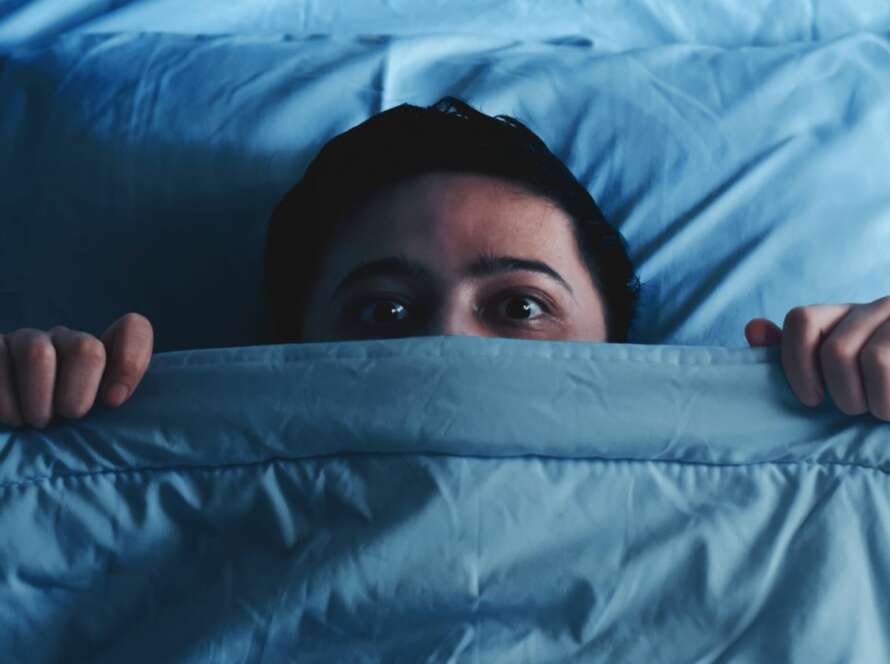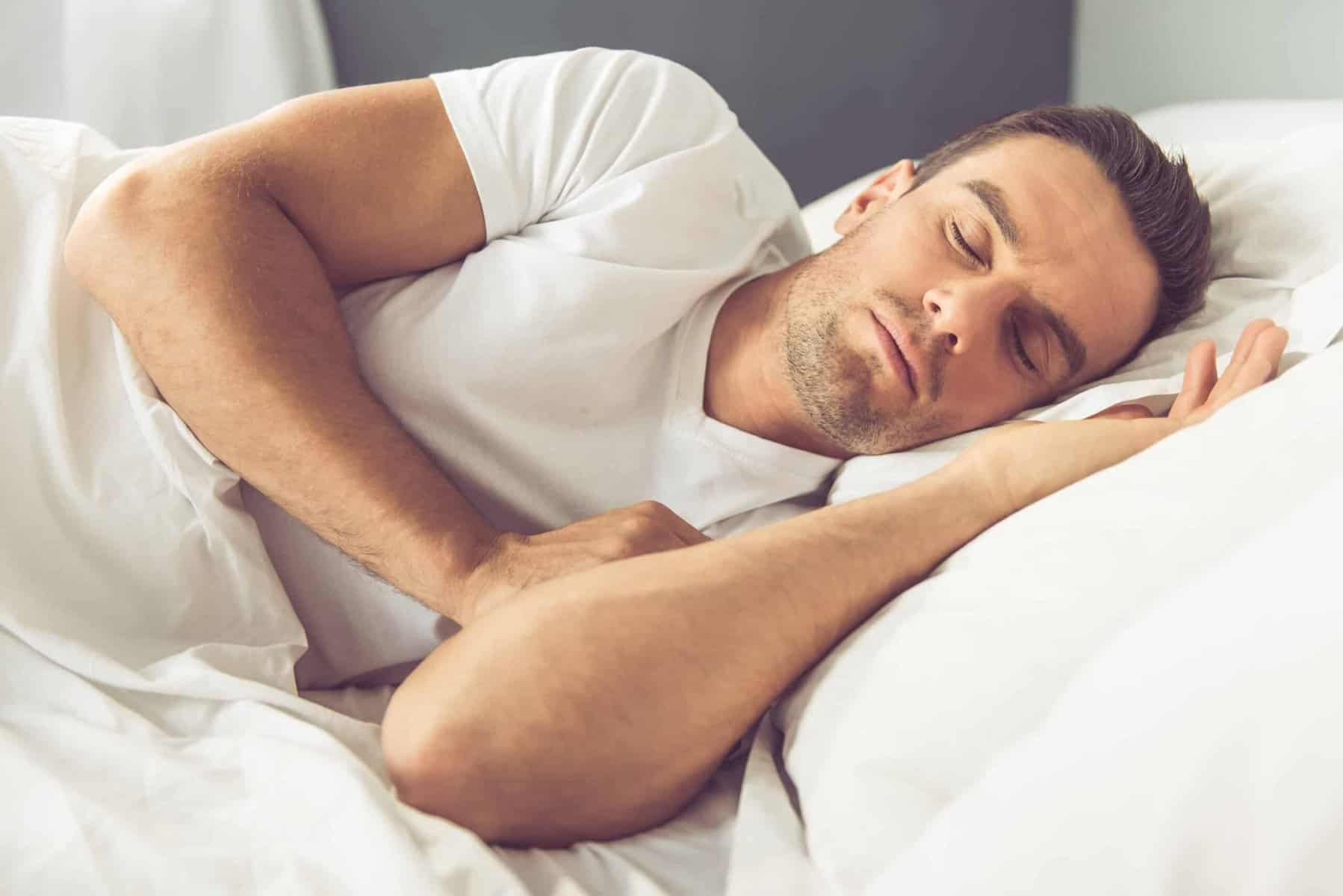Have you ever wondered, “Is sleep apnea genetic?” Maybe your dad snores loudly and stops breathing for a bit when he sleeps, and now you’re doing the same. You’re not alone in asking this question.
Sleep apnea is a common sleep problem where people stop breathing for short periods during the night. Your family can play a part in whether you get sleep apnea.
Just like eye color or height, sleep apnea can run in families. Let’s dive into why some families have more people with sleep apnea and what this means for you.
Genetics Of Sleep Apnea
When we talk about genetics and sleep apnea, we mean how your family’s health history and your genes can make you more likely to have this condition. Let’s dive into the details.
Family History
Having sleep apnea in your family does make it more likely for you to have it, too. This is because families often share traits like the shape of their face and throat. These traits can make sleep apnea more likely.
Twin Studies
Studies with twins help us understand how much of sleep apnea is genetic. When one twin has sleep apnea, the other twin often has it as well. This is especially true for identical twins, who share all their genes.
Genetic Factors
Your genes are like instructions for your body, and they can affect your risk of sleep apnea. For example, genes can make you more likely to gain weight, and being overweight is a big risk factor for sleep apnea.
Ethnicity Influence
Your ethnicity can also play a role. Some groups, like Pacific Islanders and people of Hispanic descent, could have a higher risk of sleep apnea.
Scientists think this is because of the different body shapes and sizes that are common in these groups.
Heritability Percentage
Scientists use a number called “heritability percentage” to talk about how much of sleep apnea is due to genetics. They think about 40% of the risk for sleep apnea comes from your genes.
But remember, just because you have genes for sleep apnea doesn’t mean you’ll get it. Your habits, like eating healthy and staying active, also matter greatly.
Genetic Markers
When it comes to sleep apnea being genetic, genetic markers play a crucial role. It’s like clues in our DNA that tell us if we’re likely to get certain health problems, like sleep apnea.
Identifying Genetic Links
Scientists look at the DNA of many people with sleep apnea and compare it to those without it.
They try to find patterns or changes in the DNA that show up more in people with sleep apnea. This helps us understand if sleep apnea is passed down in families.
Candidate Genes
Some genes are more likely to cause sleep apnea. Scientists call these “candidate genes.” These genes control how our body fat is distributed or how our airways work when we sleep.
By studying these genes, they can learn why some people get sleep apnea and others don’t.
Genome-Wide Studies
Big studies called genome-wide studies look at the entire DNA of a lot of people. They don’t just look at one or two genes.
These studies help scientists see the big picture of sleep apnea and genetics. They can find new genes linked to sleep apnea that we didn’t know about before.
Environmental Factors
Your daily habits and the environment you live in can greatly influence whether you get sleep apnea.
Lifestyle And Sleep Apnea
Your daily habits can increase your risk of having sleep apnea. For example, if you smoke, drink lots of alcohol, or don’t get enough exercise, you could be more likely to get sleep apnea.
Even the position you sleep in can make a difference. Sleeping on your back can make sleep apnea worse.
Epigenetic Influences
Your environment and habits can change how your genes work. This is called epigenetics.
For instance, when you’re exposed to a lot of smoke or pollution, it changes how your body controls breathing while you sleep. These changes can increase your risk of sleep apnea.
Obesity Connection
Being overweight is a big risk factor for sleep apnea. Fat around the neck can block your airway when you sleep. This makes it hard for you to breathe.
Eating healthy and staying active can help you maintain a healthy weight and reduce your risk of sleep apnea.
Complex Interplay
In this part, we will see how your genes, how you live, and other health problems all play a part in sleep apnea. It’s like a puzzle with many pieces.
Genetic Vs. Environmental
Your genes can affect your chances of having sleep apnea. For example, the shape of your head or throat can make breathing harder at night. This is something you get from your family.
But the way you live also matters a lot. Your risk goes up if you smoke, drink a lot of alcohol, or are overweight, no matter what your genes are.
Comorbid Conditions
“Comorbid conditions” means other health problems you could have with sleep apnea. Things like heart problems, diabetes, or high blood pressure often go hand in hand with sleep apnea.
Sometimes, these health issues can make sleep apnea worse, or sleep apnea can make them worse. It works both ways.
Personal Risk Assessment
To understand your own risk for sleep apnea, look at your family history and how you live. Do people in your family have sleep apnea? Do you smoke or have extra weight?
These things can tell you a lot about your risk. You should talk to a doctor if you’re worried. They can help you understand your risk better and suggest ways to stay healthy.
Management And Prevention
Knowing about your risk helps you take steps early. You can do things like change your lifestyle, get genetic counseling, and get treatment that fits you. Let’s talk about each of these in detail.
Lifestyle Modifications
Changing your lifestyle is a big step in managing and preventing sleep apnea. Here are some things you can do:
- Stay at a Healthy Weight: Keeping your weight in check helps prevent sleep apnea. Extra weight can block your airway when you sleep.
- Exercise Regularly: Exercise keeps you healthy and can help you maintain a good weight.
- Quit Smoking: Smoking can make sleep apnea worse. Quitting helps a lot.
- Limit Alcohol: Alcohol relaxes the muscles in your throat, which can block your airway.
- Sleep on Your Side: Sleeping on your back can worsen sleep apnea. Try sleeping on your side instead.
Genetic Counseling
Talking to a genetic counselor is smart if sleep apnea runs in your family. They can tell you about your risk and what to watch for. They also advise how to stay healthy and suggest a sleep study to see if you have sleep apnea.
Personalized Treatment
Everyone is different, so treatment should be, too. Your doctor can make a plan that works just for you.
Doctors often suggest ways to keep air moving for sleep apnea, such as oral medical devices and/or PAP machines, so the patient breathes better at night.
FAQs
1. Does Sleep Apnea Run In The Family?
Sleep apnea can indeed run in families, suggesting a genetic link. Your risk of developing is higher when a close family member has sleep apnea.
Genetics can affect traits like airway structure, weight tendencies, and neuromuscular control, all of which play roles in sleep apnea.
2. Are You Born With Sleep Apnea, Or Do You Develop It?
No, you’re not born with sleep apnea, but you may inherit traits that increase your risk. Sleep apnea often develops due to weight gain, aging, or lifestyle habits.
It can also emerge from structural features inherited from your family that affect breathing, like a narrow airway.
3. At What Age Does Sleep Apnea Start?
Sleep apnea can start at any age, but it’s more common in adults over 40. However, children can also develop it significantly if they have enlarged tonsils or are overweight.
It’s important to recognize symptoms like loud snoring, daytime fatigue, and pauses in breathing during sleep, regardless of age.
Is Sleep Apnea Genetic: Conclusion
So, is sleep apnea genetic? Yes, sleep apnea can come from your family, but that doesn’t mean you can’t control it. With the right changes and help from doctors, you can sleep better and take care of your health.
Remember, it’s essential to take action and talk to a health expert if you have sleep apnea. They can help you breathe easier and sleep well at night.

